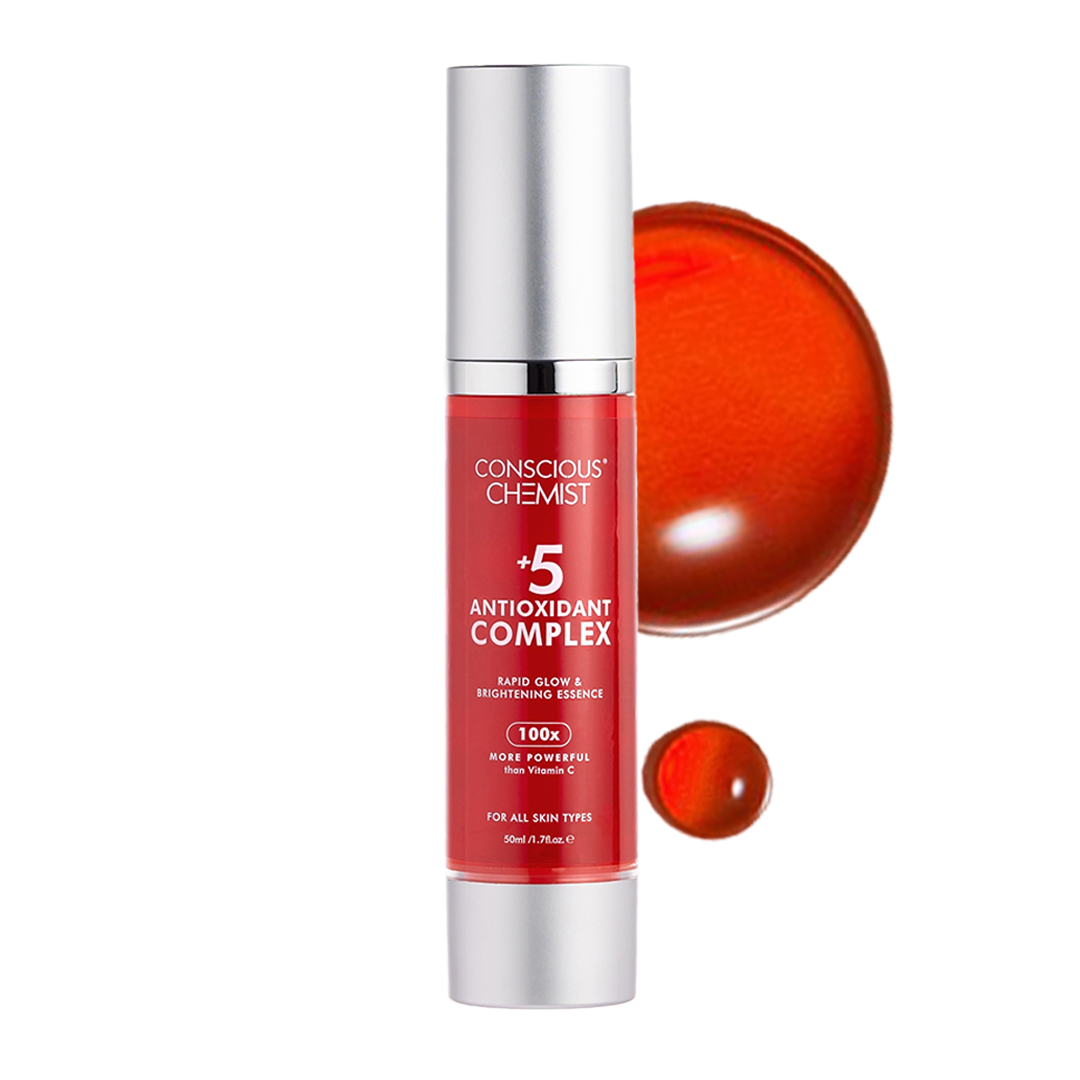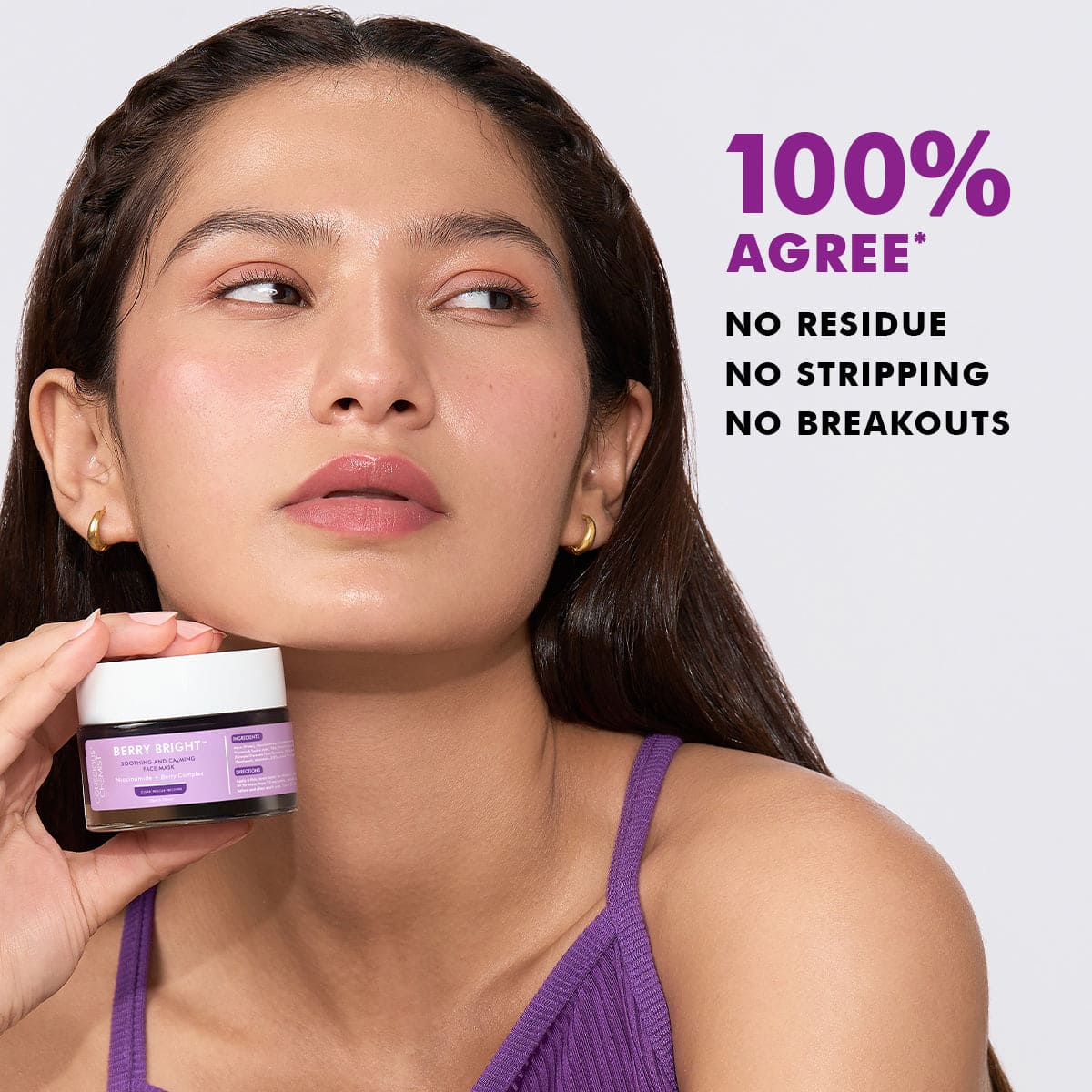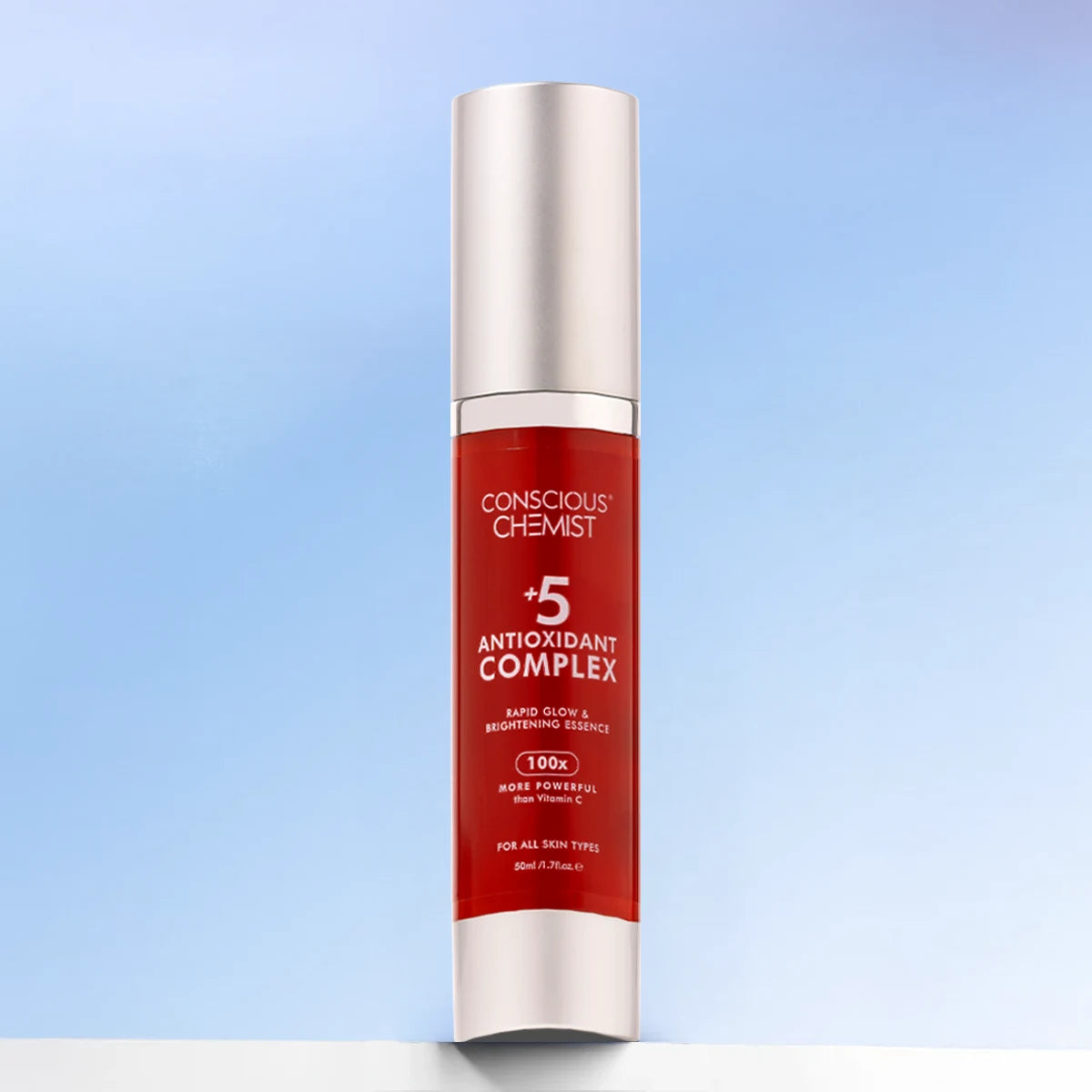
Break the hold of skincare nasties
As confusing as the product labels may sound to you, there’s no denying that they do help you to make an informed decision for your skin. From ingredients that seem scary but are good for your skin to ingredients that sound soft but should be avoided at all costs – it is a whole wide world waiting for you to be explored.
Here’s why you have got to embark on this journey of discovery:
How else would you know if the product is safe to use? |
Let’s be sure what your skin is allergic or sensitive to. |
Learn about what ingredient works best for your skin. |
Some Ingredients for you to Note Down as Red Flags.
Parabens
aka methylparaben, propylparaben, butylparapen, ethylparaben. Widely known as being harmful, Parabens form a category of preservatives that maintain the product’s freshness and potency. However, they are believed to seep through your body and disrupt your hormones. According to some studies, Parabens can also increase the risk of cancer. Formaldehydeaka quaternium-15, DMDM hydantoin, sodium hydroxymethylglycinate, etcConsidered to be a possible carcinogen, Formaldehyde is a specific type of preservative that is found in certain skincare products. It can be mentioned by different names like 5-Bromo-5-nitro-1, d-dioxane, bronopol, imidazolidinyl urea, Diazolidinyl urea, and quaternium-15.Sulfatesaka sodium lauryl sulfate (SLS)& Sodium Laureth Sulfate (SLES)Viewed as one of the most threatening ingredients in beauty products, Sulfates include ammonium lauryl sulfate, sodium lauryl sulfate, and sodium Laureth sulfate as cleansing agents that can tear and tingle the skin. Artificial FragranceCausing irritation, headaches, allergic reactions, and much worse reactions, the synthetic fragrance is harmful even for those who don't deal with sensitive or redness-prone skin.
Phthalatesaka diisononyl phthalate (DiNP), di phthalate (DEHP), diethyl phthalate (DEP)Mainly used as softeners or lubricants in a variety of skincare products and cosmetics, Phthalates are known to be endocrine disruptors that are associated with breast cancer and reproductive birth defects in males and females.
SiliconeRegardless of what your skin type is, Silicones should be avoided in skincare products at all costs as they could be keeping you from having a healthy complexion, and flawless skin, and could also be trapping debris in your pores. Apart from that, Silicon is also hazardous to the environment. |
Although the word “acid” might sound terrifying, they’re not always harsh on the skin. Apart from serving as a mild exfoliating agent, certain acids such as hyaluronic acid serum work as a key moisture-binding ingredient and are soft on the skin, regardless of the type and condition.
Continue this journey of exploration and learn about the ingredients that you should look for in your next skincare cart.
Here’s to educating yourself and knowing what’s best for your skin!
Tip: Check out these resources to deep dive into your skincare labels, and get to know them more!
· INCI Decoder: Offers detailed descriptions of product labels, making ingredient reading a breeze. Apart from covering almost every skincare ingredient on the planet INCI Decoder also has a solid coverage over products so that you can easily look up products that you are using or wish to use. A powerful tool for skincare fanatics! -Visit Site
· EWG’s Skin Deep: Like INCI Decoder Skin Deep is a database of detailed information about skincare ingredients. EWG also provides insights into the origin or class of most ingredients. They grade ingredients as per popular research, which helps in identifying the risks associated with certain nasties. -Visit Site
· Skincarisma: Skincarisma is very intuitive to use. It has some added features such as identifying suitable products by skin type. People who find chemical names frustrating may feel more at home here. Although they have an extensive database you may find many brands and products not available here. -Visit Site
· Cosmeticsinfo.org: A holy grail for hardcore skincare enthusiasts, the website covers an extensive list of ingredients. Everything from color cosmetics to shampoos, the website has it. The website also contains some very useful dos and don’ts for many popular ingredients. They also serve information about consumer and manufacturer responsibility. -Visit Site
· Wikipedia: The good ol’ Wikipedia is useful in providing an overview of many ingredients. Although it lacks communication implications and the source of info may not be always solid, a little wiki search never harmed anyone, right?






Skin Microbiome - Everything You Need To Know